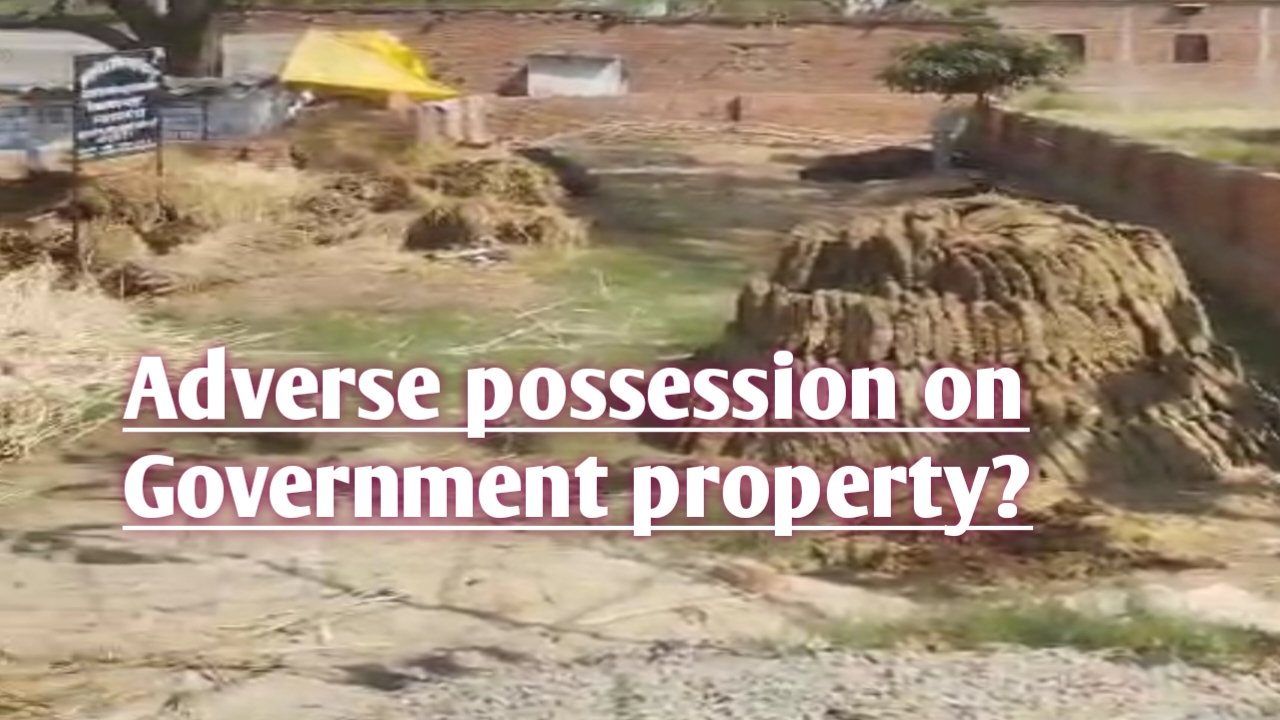Article 112 of Limitation act 1963, adverse possession applicable on government property 30 year possession & Art 65 private property 12 year.
The adverse possession is establish into a immovable property means property have real owner but he never objection into it.
Adverse possession purpose
The purpose of adverse possession is to bring property into use, property may be enjoyed. The property at which adverse possession claimed must not be tenant, sharecropper etc.
Unknown person, not tenant, sharecropper etc claim adverse possession
He shall be unknown person without any legal documents or connection with real owner of property. Means the person claiming adverse possession on property have no any piece of legal documents related to property.
Goverment of kerla & another vs Joseph & other 2010 Adverse possession
In this case Government of kerla & another Supreme Court held merely on the basis of vage witness the adverse possession not entertain.
The application under 112 of Limitation act adverse possession on Government property possession, of 30 year. Adverse possession claim on any government property only on the basis of witness shall not be owner of that property.
Limitation act Article 112 government property Adverse possession
The article 112 state that Any suit (except a suit before the Supreme Court in the exercise of its original jurisdiction). Suit by or on behalf of the Central Government or any State Government, including the Government of the State of Jammu and Kashmir.
Thirty years is Limitation period When the period of limitation would
begin to run under this Act against a
like suit by a private person.
The article 112 of Limitation act is for the adverse possession on Government immovable property of 30 year time period.
When we look the article 65 of the limitation act 1963 it states about the private property. When the possession of the defendant becomes adverse to the plaintiff.
Article 65 limitation act private property Adverse possession
For possession of immovable property or any interest therein based on title, Period of limitation 12 year.
It’s explanation (a)(b)(c) in which (a) states Where the suit is by a remainderman, a reversioner (other than a landlord) or a devisee.
The possession of the defendant shall be deemed to become adverse only when the estate of the remainderman, reversioner or devisee, as the case may be, falls into possession.
Explanation (b) Where the suit is by a Hindu or Muslim entitled to the possession of immovable property. The property on the death of a Hindu or Muslim female.
The possession of the defendant shall be deemed to become adverse only when the female dies.
Explanation (c) Where the suit is by a purchaser at a sale in execution of a decree. When the judgment- debtor was out of possession at the date of the sale.
The purchaser shall be deemed to be a representative of the judgment-debtor who was out of possession.
The application under this article 65 is for private immovable property, the adverse possession shall continue period of 12 year without interruption and known to public and owner.
Essential of Article 65 of limitation act
The essential of Article 65 of Limitation act 1963 adverse possession in private property are as following :-
- There shall be peaceful possession.
- Everyone shall known that he has taken possession in the immovable property.
- Factum of his long and continuance possession was known to true owner.
- Nature of possession must be adverse.
- There shall be continuance possession and Date of possession must be mentioned means clearly known.
- The occupiers will have to prove that the person against whom the case is being filed is real owner of that property.
Karnataka board of wakf vs Government of India (16899 of 1996) adverse possession
The SC in karnataka board of wakf held that proprietor would be considered to be in control of a property, insofar as there is no interruption.
The title of immovable property shall not be affected if it is non-used by the owner for a long time.
Radhe shyam lal vs sandhya (43228 of 2014)
- Plaintiff must also plead, mentioned true owner.
- Factum of his long and continuance possession was known to true owner.
- When he came in to possession.
- The possession was open and undisputed.
Note: Tenant, sharecropper, Lessee etc. can not claim adverse possession.

